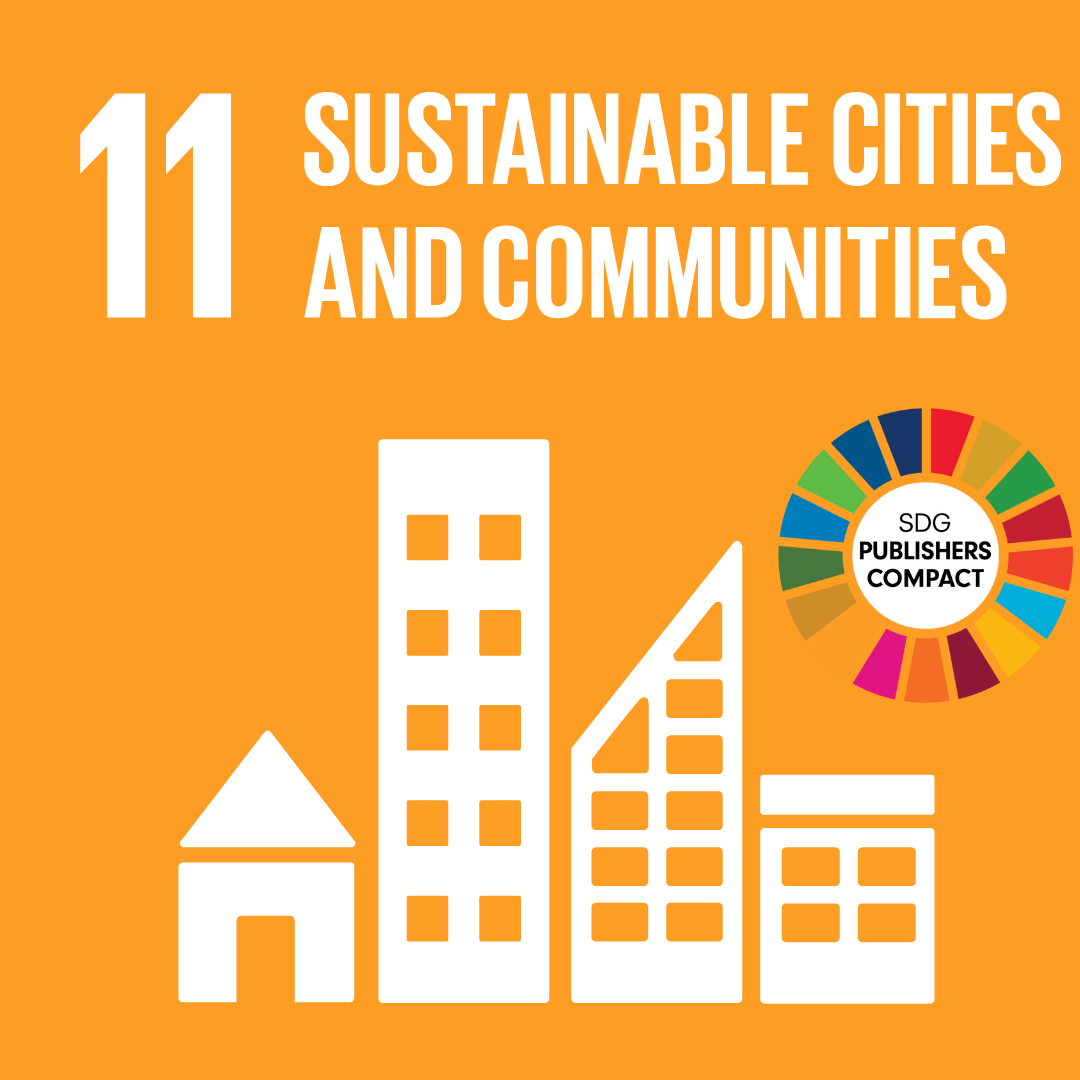Abstract
Objective: This study aims to propose a method, analyzing the feasibility and implementation of SDGs (Sustainable Development Goals) in Brazilian municipalities, examining the reality of each one. The central question is: what is being done to put the 2030 Agenda into practice in Brazilian municipalities?
Method: Design Science Research (DSR) was used as a methodological basis, as it allows the creation of artifacts that can build theories describing, explaining, and predicting how reality is defined. The objective of the method is to analyze local characteristics, verifying the practical implementation of the SDGs in Brazilian municipalities.
Results: The research resulted in the development of the Bah! Method, also creating the Bah Seal! which serves as an effective indicator, aiming to improve the present situation and future performance, creating a pioneering certification method/system.
Conclusions: It is concluded that there is a lack of implementation of the SDGs in Brazilian municipalities, thus creating the method called Bah, an acronym for Environmental and Humanized Benefit. The implementation of the SDGs generates benefits for the environment and people, aligning and proposing public policies for municipalities.
References
Almeida, F. (2002) O bom negócio da sustentabilidade. 1. ed., Rio de Janeiro: Editora Nova Fronteira.
Andery, M. A. et al. (2004). Para compreender a ciência: uma perspectiva histórica. Rio de Janeiro: Editora EDUC.
Ashley, P.A. (2002). Ética e responsabilidade social nos negócios. São Paulo: Saraiva.
Burgoyne, J. & James, K. T. (2006). Towards Best or Better Practice in Corporate Leadership Development: Operational Issues in Mode 2 and Design Science research. British Journal of Management, 17, 303-316.
Brundtland, G. (1987). Relatório da Comissão Mundial sobre Meio Ambiente e Desenvolvimento: Nosso Futuro Comum, Oxford: Oxford University Press.
Çağdaş, V. & Stubkjær, E. (2011) Design research for cadastral systems. Computers, Environment and Urban Systems, 35, 77-87.
Callado, A. L. C. (2010). Modelo de mensuração de sustentabilidade empresarial: uma aplicação em vinícolas localizadas na Serra Gaúcha. Tese (Doutorado em Agronegócio), Universidade Federal do Rio Grande do Sul, UFRGS, Porto Alegre.
Castro Filho, C. M. de. (2018). Agenda 2030 para o desenvolvimento sustentável: uma leitura de política pública na clave da biblioteca escolar. RDBCI: Revista Digital de Biblioteconomia e Ciência da Informação, 16 (3), 355–372.
Chapman, G.; Cully, A.; Kosiol, J.; Macht, S.; Chapman, R.; Fitzgerald, J.& Gertsen, F.(2020). The wicked problem of measuring real-world research impact: Using sustainable development goals (SDGs) and targets in academia. Journal of Management & Organization, 26 (6), 1030-1047.
Chakrabarti, A.(2010). A course for teaching design research methodology. Artificial Intelligence for Engineering Design, Analysis and Manufacturing, 24, 317-334.
De Faria, M.& De Paula, D. M. P. (2022). Agenda 2030 e a atuação do Poder Legislativo brasileiro. Cadernos Ibero-Americanos De Direito Sanitário, 11,84–105.
Drucker, P. F. (1984) Introdução à Administração. São Paulo: Pioneira.
Elkington, J. (2001). Canibais com Garfo e Faca. São Paulo: Makron Books.
Fischer, R. M. & Sampaio, J. R. (2002). Selos sociais: de moeda de troca à instrumento de responsabilidade social. Anais do III Seminário sobre Gestão Organizacional do Terceiro Setor. São Leopoldo: Universidade do Vale dos Sinos – UNISINOS.
George, G.; Howard-Greenville, J.; Joshi, A. & Tihanyi, L.(2016). Understanding and tackling societal grand challenges through management research. Academy of Management Journal, 59 (6), 1880–1895.
Guimarães, F. N.: Quintella, R. H. & Pimentel, R. (1999). Selo Social como instrumento de marketing: uma concepção estratégica de filantropia empresarial. Organização e Sociedade, 6 (14), 115-139.
Kuzma, E. L.; Doliveira, S. L. D.; Silva, Q. A. (2017). Competências para a sustentabilidade organizacional: uma revisão sistemática. Caderno EBAPE.BR, v.15, Edição Especial, Artigo 3, Rio de Janeiro.
Machado Filho, H. (2016). Roteiro para a Localização dos Objetivos de Desenvolvimento Sustentável: Implementação e Acompanhamento no nível subnacional. Brasília: ONUBR, 79.
Mazza, Patrícia Ikauta (2021). Education & Smart Cities: The Role of the Goals of Agenda 2030 for Sustainable Development of Smart Cities. International Journal Innovative Studies in Socioly Humanities, 6 (2), 24-31.
Munck, L.; Souza, R. B. (2009). Gestão por competências e sustentabilidade empresarial: em busca de um quadro de análise. Gestão e Sociedade, 3(6), 254-287.
ONU - Organização das Nações Unidas. (2015). Transformando Nosso Mundo: A Agenda 2030 para o Desenvolvimento Sustentável. Disponível em: https://brasil.un.org/pt-br. Acesso em 02 de fevereiro de 2022.
ONU - Organização das Nações Unidas (2021). Disponível em: https://brasil.un.org/pt-br. Acesso em 02 de outubro de 2021.
Pimentel, G. S. R. (2019). O Brasil e os Desafios da Educação e dos Educadores na Agenda 2030 da ONU. Revista Nova Paideia, 1 (3), 22-33.
Popper, K. (2006). A Lógica da Pesquisa Científica. São Paulo: Cultrix,
ROMME, A. G. L. (2003). Making a difference: Organization as Design. Organization Science, 14 (5), 558-573.
Thomas, Ryan; Hsu, Angel & Weinfurter, Amy. (2021). Sustainable and inclusive – Evaluating urban sustainability indicators’ suitability for measuring progress towards SDG-11. EPB: Urban Analytics and City Science, SAGE, 48, 2346–2362.
Simon, H. A. (1996). The Sciences of the Artificial. 3rd ed. Cambridge: MIT Press.
Scharf, R. (2004). Manual de Negócios Sustentáveis. São Paulo, Amigos da Terra.
Van Aken, J. E. (2004). Management Research Based on the Paradigm of the Design Sciences: The Quest for FieldTested and Grounded Technological Rules. Journal of Management Studies, 41 (2), 219-246.
Vazquez-Brusr, D.; Piao, R. S.; De Melo, M. F. S.; Yaryd, R.T.; Carvalho, M. M. (2020). The governance of collaboration for sustainable development: Exploring the “black box”, Journal of Cleaner Production, 256, 1-12.

This work is licensed under a Creative Commons Attribution 4.0 International License.


